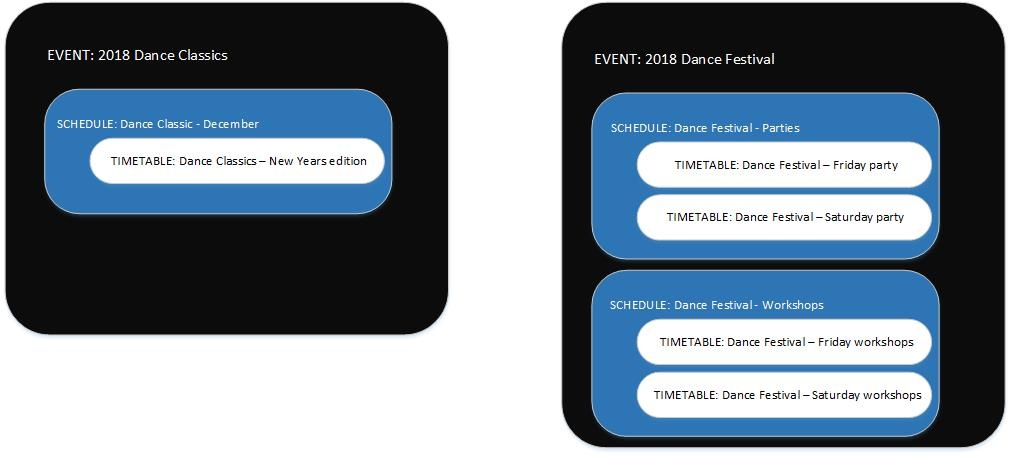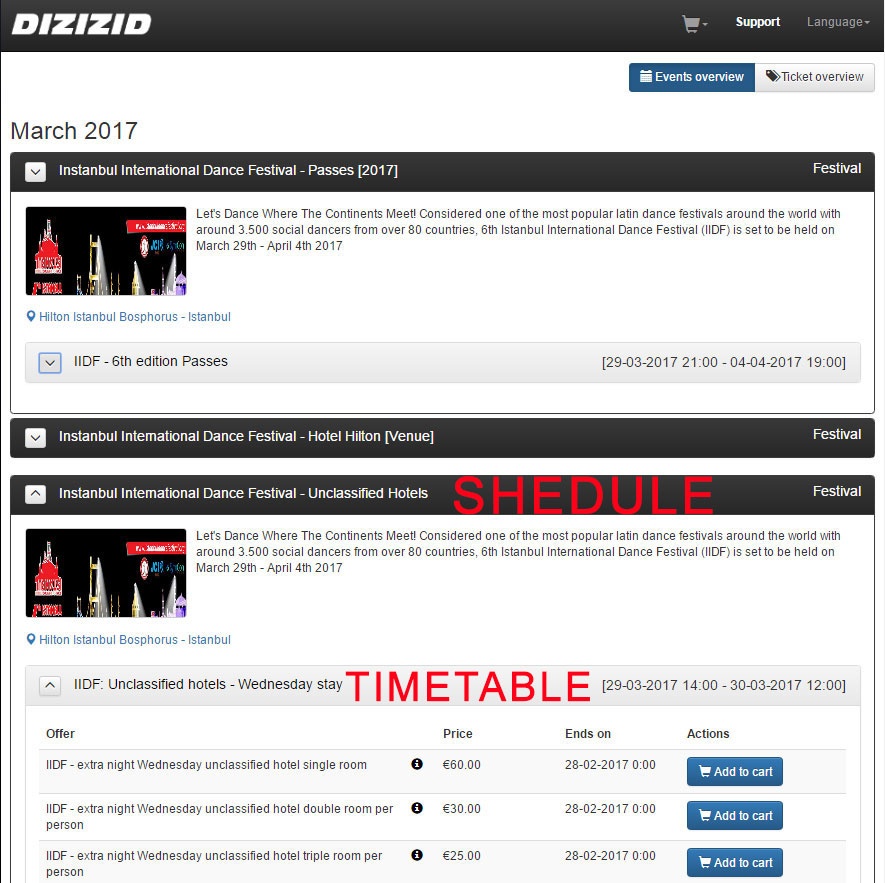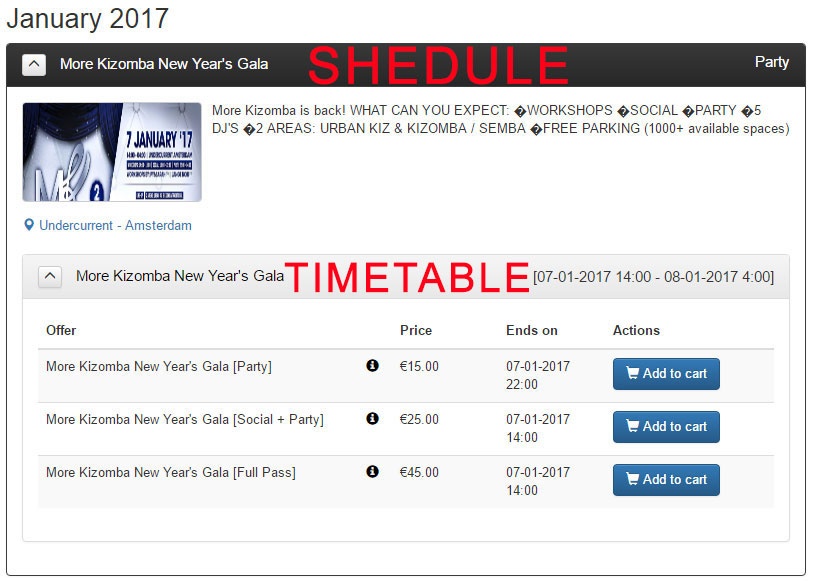The Dizizid system can be used for all kinds of events. From simple parties, workshops, classes, meetings to festivals and congresses. There a several ways to enter your event into the system and make tickets available online. For every event the same basic principles are used. An event is divided into three parts which you can see as containers or folders.
The "Event"
This is the main level container which is not shown in the ticket shop but only used to give you a clear overview of your event. If you organize for instance a monthly party you can name your event: "2018 Dance Classics". If you organize a festival you can name it "2018 Dance Festival".
The "Schedule"
Within your event you can have multiple schedules. Schedules can be used in several different ways:
- As a time period which represents a recurring event
- As a time period which represents a group of specific time tables
Recurring event time period
If you organize an event that occurs every month you could create a schedule for every month the event will take place. So the schedule for a monthly party could be "Dance Classics - December".
Group of specific type of time tables
If you are organizing a festival it is common to have several types of events within your event e.g. workshops, socials, parties etc. With the Dizizid system you can nicely organize these specific types of events within schedules. If you have a festival with only workshops and parties you could have two schedules named "Dance Festival - Parties" and "Dance Festival - Workshops". You can create as many schedules as you like to keep a good overview of your event. Every schedule you create will be visible in the web shop once it is published.
The "Timetable"
Timetables represent the actual event where people can buy a ticket for. So if you organize a monthly party, the timetable will give the exact date and time the party starts. If you organizer a festival the timetables will give the exact date and time your parties, workshops or other happening starts. So for your monthly party the name of your timetable could be "Dance Classics - New Years edition". Timetable information is also displayed on the tickets people receive, so it is important that the timetable information is correct.


